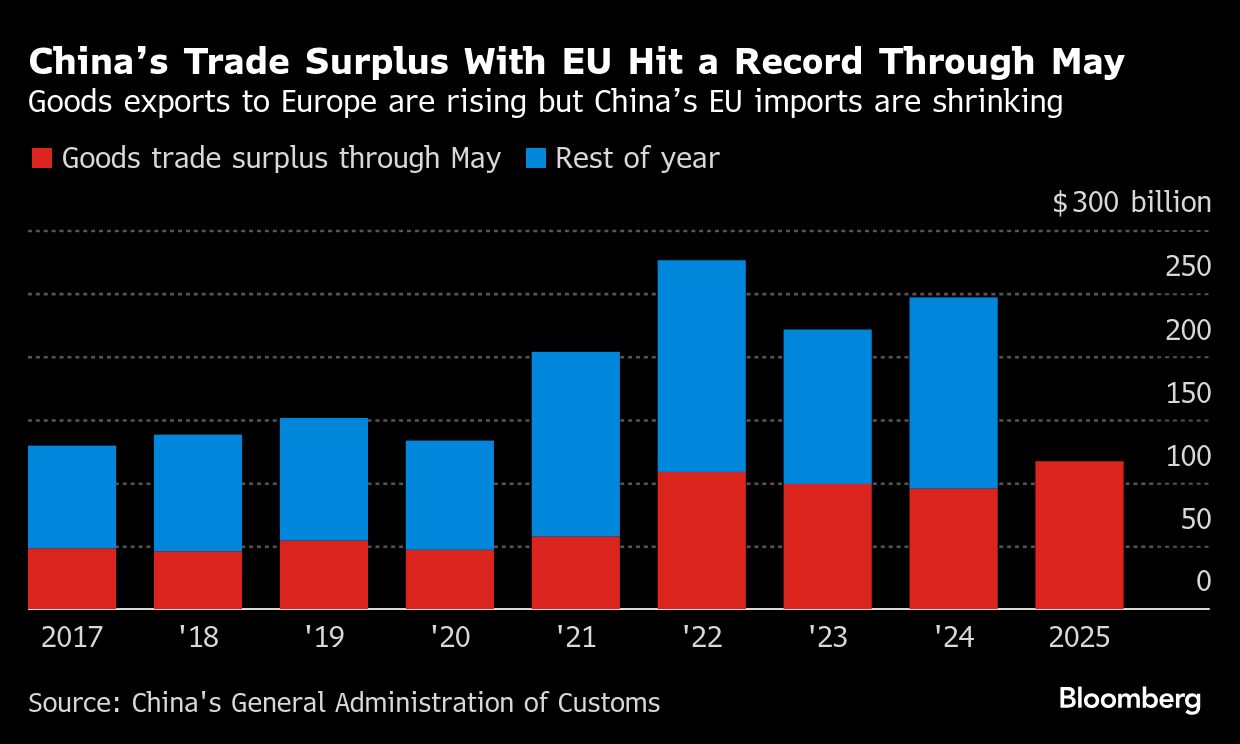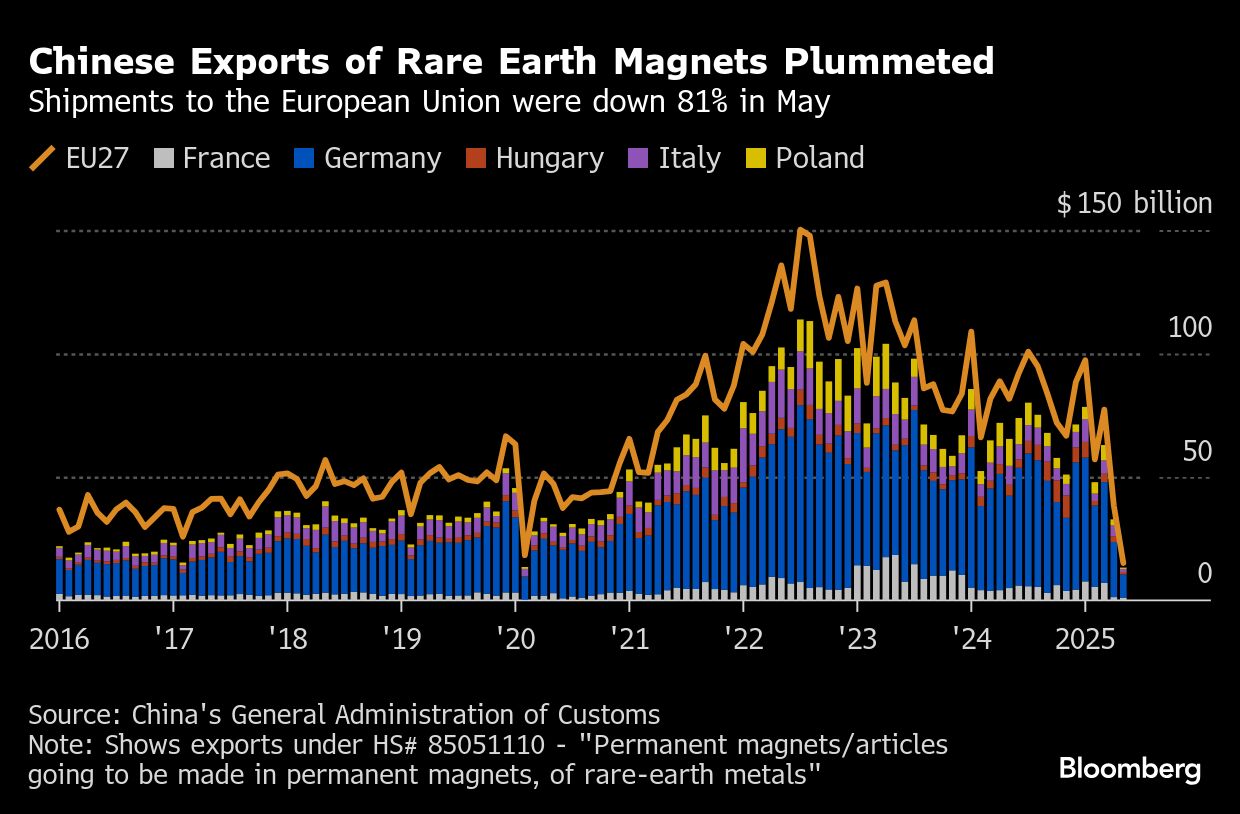
China hit back at the European Union's restrictions on its medical device makers while maintaining key exceptions, adding uncertainty to ties ahead of a high-stakes summit later this month.
Beijing will exclude EU-based companies from Chinese government procurement for certain medical devices, according to a Sunday statement by the Ministry of Finance.
Crucially, the move doesn't apply to products made in China, according to a separate statement from the Ministry of Commerce. This offers some relief for major European companies such as Siemens Healthineers AG and Royal Philips NV, which have increasingly localized their production in the world's second-largest economy.
“This looks more like a tit-for-tat move,” said Henry Gao, a professor at Singapore Management University's Yong Pung How School of Law. He characterized the Chinese measure as a narrow response to the EU's earlier curbs on Chinese medical devices in public procurement.
The trade moves come days ahead of a meeting between EU and Chinese leaders in Beijing that may touch on thorny issues, including the bloc's tariffs on a surge in Chinese electric vehicles and Beijing's support for Moscow since it invaded Ukraine.

In response to the EU levies, China began an anti-dumping investigation into some European liquors. On Friday, China imposed duties on European brandy for five years, although it exempted major cognac makers that committed to keeping their prices above minimum levels.
The carve-outs muddy whether the curbs are a symbolic warning shot or a meaningful escalation. Zhou Mi, a senior researcher at the Chinese Academy for International Trade, was quoted in a Sunday article by the state-run Global Times calling the medical-device restriction a “reciprocal response” that would “encourage the EU to foster a fair and reasonable environment” for Chinese companies.
China's leader, Xi Jinping, has sought to repair ties with the EU as US President Donald Trump alienates the bloc over issues from tariffs to defense. But tensions have grown in recent months including over China's tightening grip on rare earths that have caught European businesses in the crossfire.

In a sign of strain in relations, the Chinese government intended to shorten the two-day summit with EU leaders to just a day, Bloomberg News reported last week.
Cui Hongjian, a former Chinese diplomat who teaches at Beijing Foreign Studies University, said China is adopting a defensive posture and aims to convey that it will cooperate if Europe de-escalates but is prepared to respond if tensions rise.
“China is ready for any kind of summit,” he said. “It's different from past, when China always tried to pursue a fruitful summit.”
The EU has long complained that its companies don't enjoy a level playing field in China and were regularly denied fair market access. It imposed steep tariffs on Chinese EV imports last year, alleging state subsidies gave the country's vehicles an unfair advantage.
China's Commerce Ministry said in early June that talks with the EU on setting minimum prices for Chinese-made electric vehicles have “entered final stages.” The technical part of the electric vehicle negotiations has been basically completed, Yuyuantantian, a social media account affiliated with state broadcaster China Central Television, said in a Friday post, without saying where it got the information.
Essential Business Intelligence, Continuous LIVE TV, Sharp Market Insights, Practical Personal Finance Advice and Latest Stories — On NDTV Profit.























